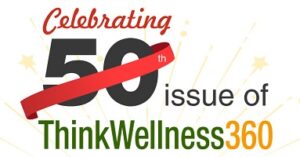
What makes a sick person different from a healthy person, and how can people move from one side of the health equation to the other? This is truly a spiritual and temporal transformation encompassing every aspect of life.
I have noticed that healthy people have a low tolerance for unhealthy things, while people who are ill can endure great suffering to maintain themselves in their ill state. Becoming healthy requires a commitment and an unwavering desire to achieving health, happiness, and harmony. It requires one to be a rebel, and to be willing to go beyond convention in one’s thinking and behaviour. Healthy people see themselves as number one, and behave very lovingly toward themselves. This is also a very unconventional attitude in today’s world.
Here is a list of strategies to transform yourself, step-by-step:
- Thoughts — purify the mind. Feel good will towards all beings, especially the people you live with. Practice forgiveness of self and others.
- Exert your will to eliminate and overcome resentful thoughts, jealous thoughts, worry thoughts, guilty thoughts, etc. These I call ‘evils of the soul.’
- Keep emotions in balance. Do not indulge in emotional excess, such as excessive grief, excessive hurt feelings, excessive anger, and excessive love, or hate. Any emotion carried too far is a shock to the system and can cause illness.
- Be wary of extraordinary efforts, such as the work involved in putting on a large wedding, or Bar Mitzvah. Excessive effort is pushing activity too far, leaving the realm of harmony and balance; it can undermine health. Keep social obligations to a minimum.
- Avoid excesses in studying. Evenings should be spent in rest, relaxation, family time, and spiritual endeavours, such as meditation. The mind needs time to unwind and relax before going to sleep. Doing homework too late at night and for too many hours in the evening can cause the student to lose their spiritual centre and health. The feeling that there is nothing one has to do is one of the most healing and joyful emotions human beings can experience. This should be cherished, nurtured, and safeguarded.
- Avoid under working, which can be as damaging as overworking. Work must be in balance. Work gives meaning, satisfaction, feelings of self-worth, and security. When you work at what you love doing you feel happy, fulfilled, like you are contributing to the world. Working at what you do not love doing causes illness. If this is your situation, work towards changing it and finding work that is more conducive to you.
- Place priority on the self in all things. When time is limited and you must make a choice of where to put your energies, always choose the self, first. It is okay to neglect your housework. It is not okay to neglect yourself and your family.
- Have a strong desire for health. Focus internally and see what works and what doesn’t. Actively eliminate faults and unhealthy habits. Watch out for unhappiness, and make adjustments in your life to bring it into happiness and harmony.
- Exercise in balance. Neither overdo nor underdo it. Exercise should be a joyful experience. Its purpose should not be to test your limits of endurance, but a celebration of your body, and an act of personal love. Do not push yourself to the point of exhaustion. When you have reached this point you have gone too far, and it is hard to recover. Exercise prevents osteoporosis, keeps the body flexible, young and graceful.
- Keep entertainment in balance. This includes watching television, going to the movies and reading. Mental work must be done to process the information and emotions from these sources. This can tire the spirit, the mind, and the emotions, which need plenty of quiet time to balance the excessive intellectual stimulation of modern life.
- Practice meditation. Meditation is transcending triple time — thoughts of the past, thoughts of the future and thoughts of the present. Make your life your laboratory, and practice non-thought formation when you are sitting, walking, driving, lying down, working, washing and cooking, and in all activities of your life. Set aside twenty minutes 2-3 times a day for introspection. This is an ideal. The closer you can come to doing this, the nearer you will be to the goal of perfect health.
- Reduce sources of conflict in your life. Sometimes meditation can help with this. At other times active choices must be made to reduce tension and bring about peace.
- Increase trust in survival. Neither be ecstatic about your successes nor devastated by your failures. Not everything is under your control. Sometimes, it is necessary to let go of trying to make things happen, and go with the flow. Working hard does not guarantee your survival, and that you will have a reasonable standard of living. Do not, therefore, judge yourself harshly if you are not a great success, and have compassion for others who are less well off than you. Don’t be afraid to lose what you have. Usually, when one door closes a better one opens up down the road.
- Increase gratitude. Be wary of discontent. One promotes health, the other illness.
- Eliminate doubting thoughts. These undermine your confidence, reduce your effectiveness, and waste emotional energy. Practice karma yoga when you work. Do your best while you are executing the task. After that, have no attachment to the results of your labours. Trust that you have done your best, and let go. Don’t think about it again. Forbid yourself to doubt your performance.
- As the Buddha says, minimise your desires. Possessing too much is as harmful as possessing too little. Seek the middle ground between these two extremes. Guard against greed and asceticism equally.
- Perfectionism — excessive orderliness, organisation, cleanliness, and attention to detail should be avoided. To maintain things in a perfect state requires an extraordinary expenditure of physical and mental energy. We should be relaxed, balanced and harmonious in the way we work, and the way we maintain our homes and our physical bodies.
- Responsibility — assuming too much responsibility is harmful, because we expend a disproportionate amount of energy, our life force, in comparison to other people we are involved with. The wise and healthy thing to do is not to take on responsibility for what we are not responsible for. As in all things the middle ground should be adhered to, where we are responsible for just the right amount.
- Sympathy — being excessively sympathetic is a leading cause of illness and should be guarded against. When our emotions go out to others, they literally go out and we are in danger of losing our centre. Once we ‘lose’ our centre it is very difficult to regain it. Watch out for situations where you feel too much sympathy. If you can avoid such situations, do so; if you can’t avoid them do your best to minimise their impact. Offer help when the opportunity arises, but let go quickly, and do not internalise other people’s pain. It can easily drag you down and disempower you, if you allow it to.
- Weeping over the misery of the world — Lao-tzu, the Taoist sage, says that to spend a finite lifetime bemoaning the miseries of the world is like weeping into a river in fear of its drying up. This is not the most productive way to spend your time. There will always be suffering. It will be around long after you are gone. Be grateful for what you have and enjoy your life. Don’t waste your time crying over what you have no power to change. This way you won’t dissipate your emotional energy, and your power to effect change within your reach will increase.
- Alone time — make sure that you have time during the week to be by yourself, time that belongs to you, free of family and work obligations. If you are in a relationship, schedule alone time away from your partner and children each week. This is crucial to having good health. Too much togetherness in relationships is as harmful as too much aloofness. Find a healthy balance between these two extremes.
- Eating — what you eat makes a difference in your health. Eat as healthy as possible and try to reduce habit foods to balanced levels. Eat a varied diet. Try to eat organic fruits and vegetables, and ‘keep’ low on the food chain. Animal protein should be eaten in moderation. If you can eat everything without experiencing digestive problems, that’s wonderful. If not, respect what your body tells you in this regard and eat what you know you can handle. As with all things follow the middle path, eating neither too much, nor too little, but just the right amount.
- Time bound awareness — living by the clock is a modern phenomenon, unnatural and unhealthy for human beings. Do what you can to minimise the impact of time awareness on yourself. The need to be on time adds an element of tension. It takes our attention from focusing internally on our personal needs and what makes us happy, to focusing externally on an object that regulates our behaviour. Waking up by the alarm clock even though we feel a need to continue sleeping is an example of how time bound awareness causes us to stop listening to our inner needs and takes us out of harmony with ourselves.
Dr DEBORAH OLENEV, CCH, RSHom [NA], is a Classical Homeopath based in Mountain View, California, US. She treats people from all over the world via phone and video conferencing. Dr Olenev has had a passion for homeopathy for nearly forty years and has been in private practice since 1991. She has a vast knowledge of homeopathic Materia Medica, and integrates homeopathy with herbal medicine too. She is the owner of First Aid Cream, where she teaches about and sells homeopathic first-aid creams. She has several years of experience treating autistic children and people of all ages for all manner of health conditions.
[This article was first published May 22, 2022].


I loved this article so very much. Thank you!